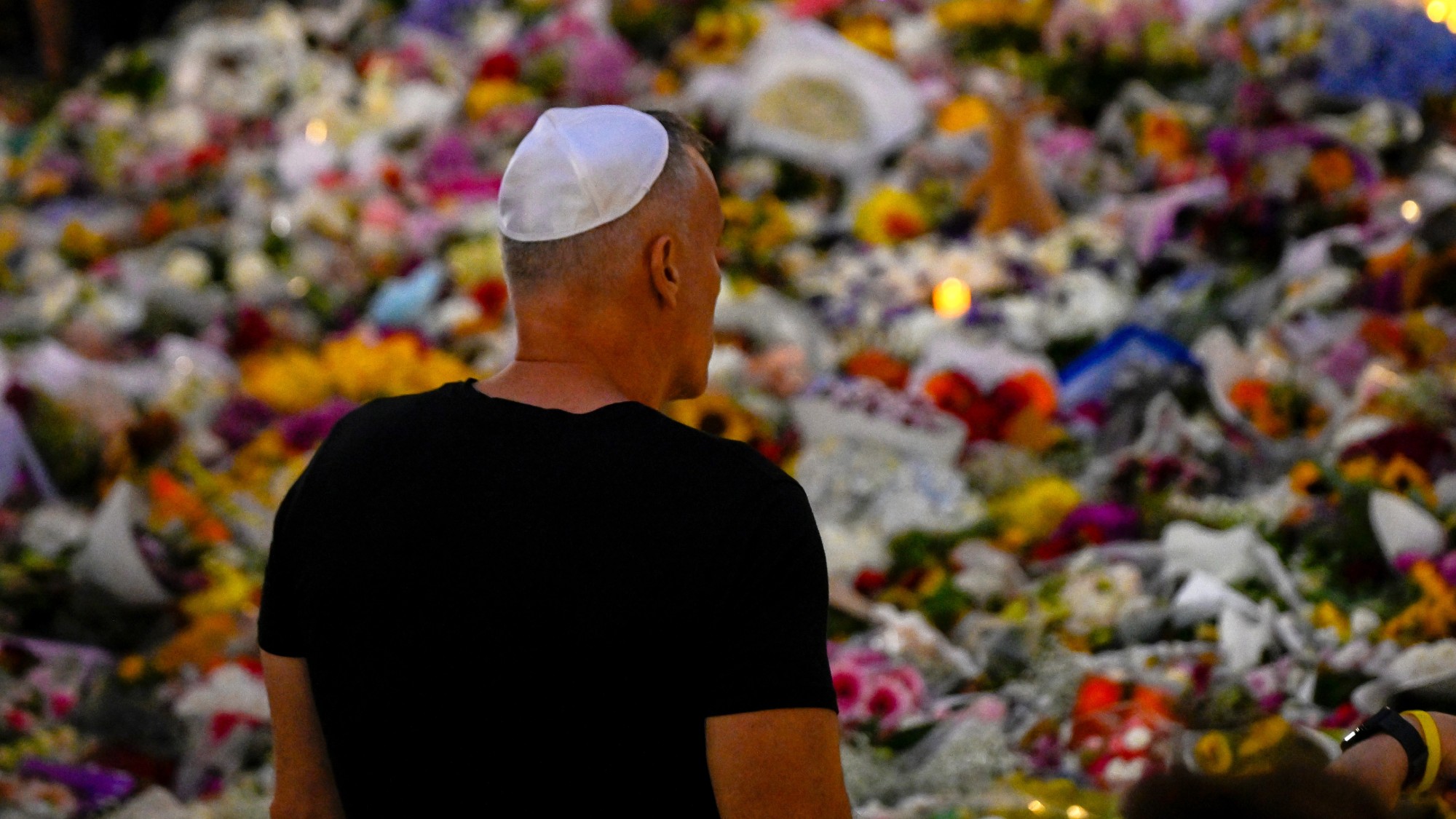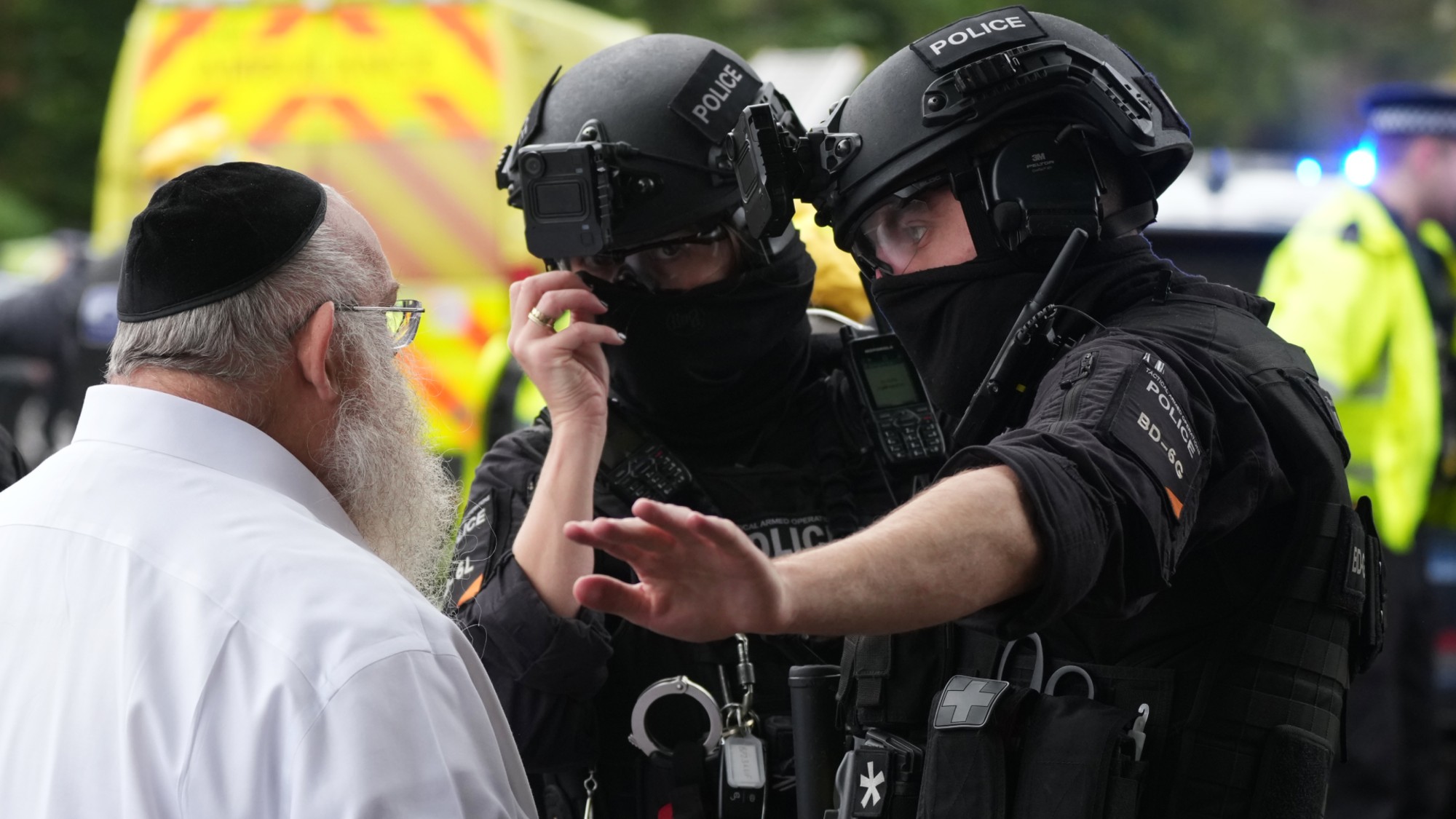Terror on wheels: the history of vehicle-ramming attacks
Cars and lorries have now become 'the jihadist's weapon of choice' but they've been a mass-killing weapon for years

A free daily email with the biggest news stories of the day – and the best features from TheWeek.com
You are now subscribed
Your newsletter sign-up was successful
Fifteen people were killed, and more than 30 injured, when a man drove a pick-up truck at high speed through crowds of people in the streets of New Orleans in the early hours of New Year's Day.
The attack in the US, which is being treated by the FBI as "an act of terrorism", came only a fortnight after an SUV was driven into crowds at a Christmas market in Magdeburg, Germany, killing five people and injuring 200.
Vehicle-ramming attacks are becoming "an increasing common terrorist tactic", according to transportation-safety researchers at San José State University. It is a "growing trend, and a frightening one": where once perpetrators were likely to be "mental disordered individuals", they are now often "confirmed or likely" jihadists.
The Week
Escape your echo chamber. Get the facts behind the news, plus analysis from multiple perspectives.

Sign up for The Week's Free Newsletters
From our morning news briefing to a weekly Good News Newsletter, get the best of The Week delivered directly to your inbox.
From our morning news briefing to a weekly Good News Newsletter, get the best of The Week delivered directly to your inbox.
When did vehicle-ramming attacks start?
Using vehicles as a weapon has a "long history" that's "mostly unrelated to organised terrorism", said The New York Times. In 1964, a bus driver ran down four people in Taipei, Taiwan, killing three of them, in a rampage triggered by a low work-performance rating. Nine years later, a 22-year-old Czech woman mowed down eight people in Prague with a pick-up truck, "citing her grievances against society".
Over the following few decades, there were a number of ramming attacks associated with the Palestinian cause, and mostly confined to Israel and the West Bank. But vehicle-ramming began to spread more widely in 2016, after Islamic State told followers that "if you are not able to find an improvised explosive device or a bullet", they should attack the "disbelieving American, Frenchman or any of their allies" and "run him over with your car".
The jihadist group's magazine, Rumiyah, even explained the optimum weight and speed of a vehicle to create the "ultimate bloodbath", and suggested that followers should "hit" large outdoor gatherings and "pedestrian-congested streets".
That same year, a Tunisian-born French resident drove a rented lorry along a busy seaside promenade in Nice, killing 86 people and wounding more than 400. Over the following months, there were vehicle-ramming attacks in Berlin, London and the US, all claimed by Islamic State.
A free daily email with the biggest news stories of the day – and the best features from TheWeek.com
Why have vehicle rammings become more widespread?
Following the September 11 attacks, high-profile targets, such as airports and public buildings, were increasingly heavily guarded. This meant terrorists started to consider "more vulnerable targets", such as crowds of people in public spaces, said The New York Times.
Vehicle rammings have now "become the jihadist's weapon of choice", said The Times, because they are a "low-tech tactical innovation" that achieves success while minimising "the risk of detection by law enforcement". Hiring or stealing a car or truck does not raise the same "red flags" that obtaining weapons or bomb-making materials would. And it's much cheaper, making the ramming attack the "poor man's weapon of mass destruction".
By transforming "a bland, everyday object into a lethal, semi-strategic weapon", said researchers in a 2019 paper, published in The British Journal of Criminology, ramming attacks offer "marginal actors" the chance to "strike at the heart of urban centres" and "sow fear in the wider society".
What's being done to stop vehicle-ramming attacks?
Security bollards have become more commonplace in busy public areas, and were credited with "minimising damage and casualties" in the 2007 Glasgow airport attack, among others.
But recent attacks "have shown how difficult it can be to eliminate the threat entirely", said The New York Times. The Magdeburg perpetrator dodged preventative measures by using a lane reserved for ambulances, and a police spokesperson told the media that the New Orleans attacker "went around our barricades".
Chas Newkey-Burden has been part of The Week Digital team for more than a decade and a journalist for 25 years, starting out on the irreverent football weekly 90 Minutes, before moving to lifestyle magazines Loaded and Attitude. He was a columnist for The Big Issue and landed a world exclusive with David Beckham that became the weekly magazine’s bestselling issue. He now writes regularly for The Guardian, The Telegraph, The Independent, Metro, FourFourTwo and the i new site. He is also the author of a number of non-fiction books.
-
 Switzerland could vote to cap its population
Switzerland could vote to cap its populationUnder the Radar Swiss People’s Party proposes referendum on radical anti-immigration measure to limit residents to 10 million
-
 Political cartoons for February 15
Political cartoons for February 15Cartoons Sunday's political cartoons include political ventriloquism, Europe in the middle, and more
-
 The broken water companies failing England and Wales
The broken water companies failing England and WalesExplainer With rising bills, deteriorating river health and a lack of investment, regulators face an uphill battle to stabilise the industry
-
 How the ‘British FBI’ will work
How the ‘British FBI’ will workThe Explainer New National Police Service to focus on fighting terrorism, fraud and organised crime, freeing up local forces to tackle everyday offences
-
 How the Bondi massacre unfolded
How the Bondi massacre unfoldedIn Depth Deadly terrorist attack during Hanukkah celebration in Sydney prompts review of Australia’s gun control laws and reckoning over global rise in antisemitism
-
 Who is fuelling the flames of antisemitism in Australia?
Who is fuelling the flames of antisemitism in Australia?Today’s Big Question Deadly Bondi Beach attack the result of ‘permissive environment’ where warning signs were ‘too often left unchecked’
-
 Ten years after Bataclan: how has France changed?
Ten years after Bataclan: how has France changed?Today's Big Question ‘Act of war’ by Islamist terrorists was a ‘shockingly direct challenge’ to Western morality
-
 Arsonist who attacked Shapiro gets 25-50 years
Arsonist who attacked Shapiro gets 25-50 yearsSpeed Read Cody Balmer broke into the Pennsylvania governor’s mansion and tried to burn it down
-
 Manchester synagogue attack: what do we know?
Manchester synagogue attack: what do we know?Today’s Big Question Two dead after car and stabbing attack on holiest day in Jewish year
-
 Tommy Robinson: a timeline of legal troubles
Tommy Robinson: a timeline of legal troublesThe Explainer Far-right leader has relied on donations from supporters to fight numerous court cases dating back 20 years
-
 The Miami Showband massacre, 50 years on
The Miami Showband massacre, 50 years onThe Explainer Unanswered questions remain over Troubles terror attack that killed three members of one of Ireland's most popular music acts